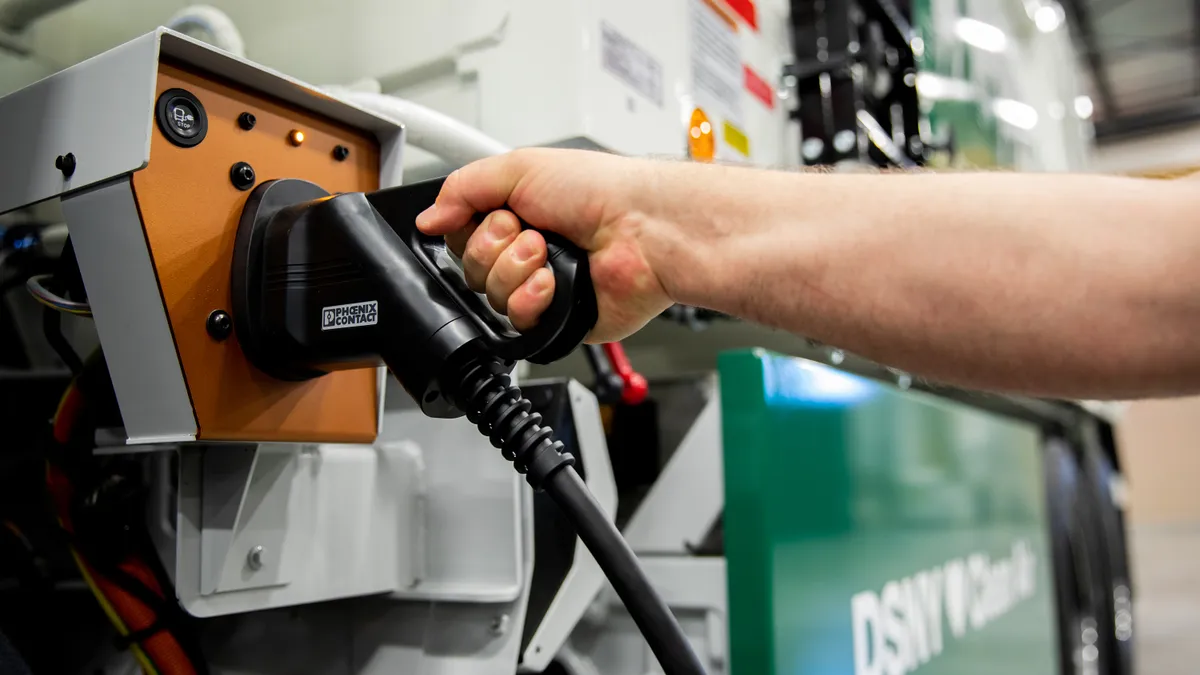The U.S. Department of Energy awarded $208 million to Volvo Technology of America to help fast-track the production of heavy-duty electric trucks and related powertrain components at factories that produce the Mack LR Electric refuse truck.
The funding will assist Volvo Group’s Lehigh Valley Operations truck assembly site in Macungie, Pennsylvania, where it produces Mack trucks, and its New River Valley truck location in Dublin, Virginia, Volvo’s largest truck manufacturing plant in the world.
Facilities will be upgraded and move toward mixed model assembly, allowing for scalability and flexibility, according to Pennsylvania Sen. Bob Casey.
“The upgrades enable a novel manufacturing approach that will significantly increase the production capacity potential of battery electric vehicles (BEV)/fuel cell electric vehicles (FCEV),” a project summary said, noting how the changes will help improve BEV and FCEV production processes.
The money will help convert the facilities to zero-emission sites, part of Volvo Group’s goal to be 100% fossil-free by 2040, according to a project summary. Among those changes, a Hagerstown, Maryland, plant will get upgrades to support powertrain operations, a Volvo spokesperson said in an email.
“Through facility upgrades and employee training, this grant will help our U.S. plants more efficiently produce the innovative trucks and zero-emission powertrain components essential to this transition,” Stephen Roy, chairman of Volvo Group North America and president of Mack Trucks, said in a statement.
Funding comes through the Domestic Manufacturing Conversion grant program and will create 295 new union jobs for Volvo and Mack, according to Casey. The $2 billion program, available through Sept. 30, 2031, supports domestic production of hybrid, electric and hydrogen fuel cell vehicles, per a federal website.
Volvo wasn’t the only trucking industry recipient of the grant money announced last week.
The department awarded ZF Axle Drives Marysville nearly $158 million to convert part of its Marysville, Michigan, facility from internal combustion engine driveline component production to EV components for potential new customers, a project summary said.
Cummins will spend $75 million and receive a matching amount to convert an approximately 360,000-square-foot portion of an engine plant in Columbus, Indiana, for the manufacturing of zero-emission components and electric powertrain systems, per a project summary.
“The $75 million grant is the largest federal grant ever awarded solely to Cummins and is part of the appropriations related to the Inflation Reduction Act,” the engine manufacturer said. Cummins plans to reach net-zero emissions by 2050.















